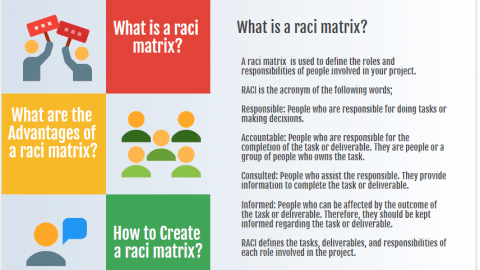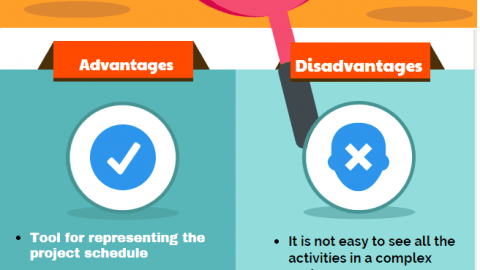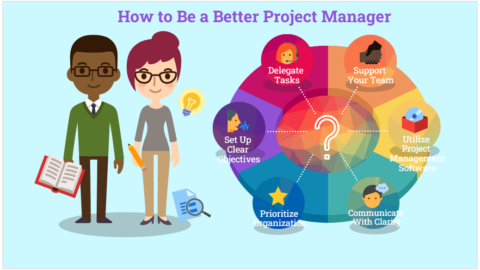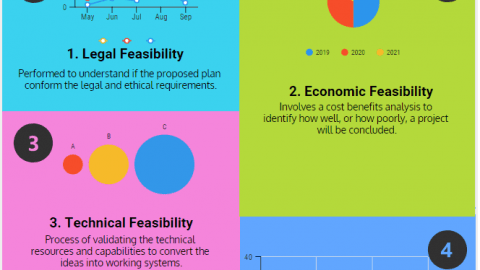Crisis Management in Project Management
Crisis management is an important concept in project management. As a project manager, you need to know what you should do during a crisis in your project. While you were working as a team member or an employee in the project, most probably you have observed how your project manager handled the crisis when the project is over budget, a major project milestone has been missed or the client wanted to terminate the contract due to your low performance. Basically, a crisis in a project can be in various shapes and sizes that may have financial, technological, or managerial origins. Experienced project managers adopt some measures and practices to handle the crisis to minimize their effects on the project goals. In this article, we will discuss the crisis management steps to be taken before and during a crisis and share best practices to handle the crisis in projects.
Table of Contents
5 Steps to Crisis Management in Projects
The primary strategy in crisis management is to develop prevention strategies before the project starts. Despite all efforts, if a crisis arises, you need to lead the project team and implement strategies to minimize the destructive effects. Once you have resisted the spread of the crisis, you need to identify the root cause and repair the damages.
Crisis Prevention
Crisis prevention is the first step and most important step in crisis management. Because preventing is easier than managing. We are sure, it is not easy to realize everything but if you pay attention to early warning signs, you will understand a crisis is coming. For example, a weather bureau has a series of monitoring devices in place to understand when a storm is coming. The same goes for project teams. Monitoring and controlling all aspects of a project provides inputs for crisis management. However, if you are new to project management, you might not receive and evaluate the signs all the time. Below tips may be helpful if you are new to this role.
- Gather insights from experienced project managers
- Try to understand how other people handled the same type of crisis in the past
- Analyze how your competitors handle the same type of crisis
- Use other resources (internet, social media, etc.)
Develop Plans to Handle Crisis
Assign a crisis management team to develop contingency plans to handle the crisis. This team can be formed by department managers or management staff. Make sure that team members are trained on the risks and contingencies.
Keep Cool During Crisis
As a project manager, you need to lead your team cooly during a crisis. Team members are going to be looking at your eyes for support. If your team members see that you are anxious, their motivation will fall through the floor. If you lose your self-control during the crisis, so will your team members. If you seem optimistic, your team will start to work harder to handle the crisis successfully.
Stop the Crisis from Spreading
One of the most important steps in crisis management is to stop the crisis from spreading. When the crisis arises, you and your team can not prevent it. But if you take measurements realistically, you will find a chance to control it.
In order to stop the crisis from spreading;
- Focus on the crisis quickly and cooly
- Gather data to take measurements
- Use your crisis management team that you formed before
- Communicate with experts who can help you
Repair the Damage and Identify the Root Cause
Once you have stopped the crisis from spreading, start to repair the damage. Then you need to identify the root cause of the crisis in order to prevent its reoccurrence. At this step holding a brainstorming session is will help you and your team to detect the root cause.
Tips for Effective Crisis Management in Project Management
Here below are the tips gathered from experienced project managers for crisis management.
Tip 1 # Quickly Respond to the Warning Signs
Initial responses are vital for successful crisis management. There are often some signs before a risk occurs. If you respond to the risks quickly, you can withhold the problems at their source.
Tip 2 # Make Decisions Immediately
During a crisis, you need to use your resources to stop it from spreading. At this step, the risk management plan along and the contingency action plan will guide you to respond to the situation.
Tip 3 # Focus on the Big Picture
Focus on the big picture rather than trivial details in order to make the right decisions.
Tip 4 # Be open to New Ideas
As a project manager, you must always be open to new ideas. You can gain a different point of view from different people. If you don’t encourage your team members to make decisions, you will lose chances of new feasible ideas regarding the solution of problems.
Tip 5 # Be a Good Communicator
If you are a good communicator, you will influence people and motivate them during a crisis. If you don’t establish good communication channels with stakeholders, it will be difficult for you to get their support when needed.
Tip 6 # Face Reality All the Time
As a project manager, in case a crisis arises, you must face reality and negotiate the situation with team members. Don’t ignore the crisis.
Summary
Crises are inevitable in projects. Project managers face various types and sizes of crises every workday. However, the destructive effects of a crisis can be reduced most of the time by using planning tools and risk analysis. Contingency plans, project schedules, logic charts, and meetings are helpful to detect crises before they arise. It is the project manager’s business to plan for the inevitable crises that will affect project performance.
External Reference
See Also
Emotional intelligence in project management
Emotional intelligence in leadership
How to manage project conflict

Lorena Denny is a passionate Transformation, Portfolio, Program & Project Management Consultant with a natural flair for breathing new life and energy into individuals, teams and projects, moving people to action and making change happen. She is the founder of Lorena Denny Consultancy.











Also, anticipating what kind of crisis we may encounter with in the future is an important skill too.
with right ranking like in this article every crisis can be solved.
One of the things I like most of all is analyzing my completed projects to find mistakes and think about ways to prevent those mistakes from occurring again in my future activities. Such a correction of mistakes helps me be more efficient and lead my people to a perfect project environment. :))